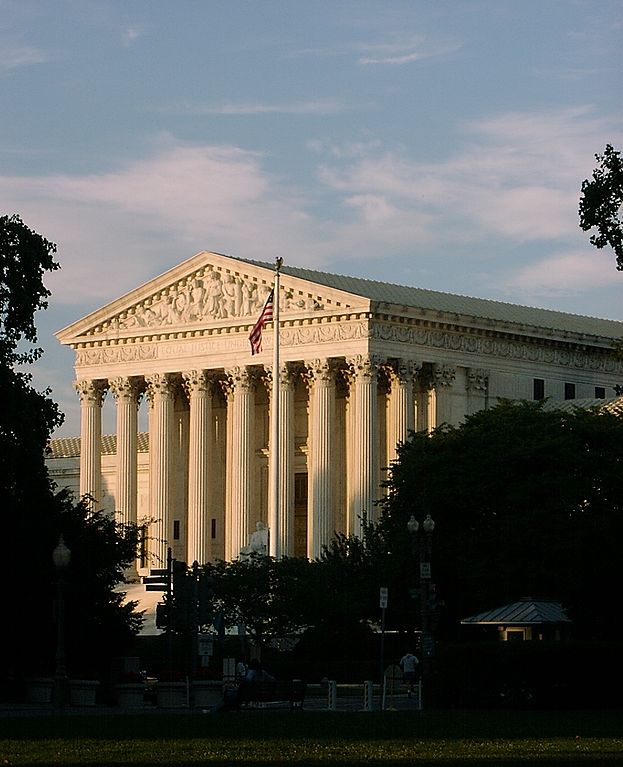





Photo: Wikimedia Commons
On Monday, 4 June 2018, the United States Supreme Court announced their decision in Masterpiece Cakeshop, Ltd. v. Colorado Civil Rights Commission. Seven of the court's nine justices sided with the owner of Masterpiece Cakeshop in Colorado, who had refused to make a wedding cake for a same-sex couple because he felt it violated his religous beliefs. ICLRS Director Brett Scharffs and Associate Director Elizabeth Clark were asked to weigh in on the decision. Both had signed an amicus brief in support of the cakeshop in this case.
Professor Scharffs spoke on the BYU Radio program Top of Mind with Julie Rose about the decision. In the interview he provided a basic understanding of the case as well as analysis of the decision. Professor Scharffs said that "the most important guidance given is that when a court or tribunal is weighing and balancing competing rights, it needs to be done in a fair-handed way." He referred to the frequent use of the words hostility and neutrality in the decision. "If anything this case stands as a strong rebuke to the Colorado Civil Rights Commission," he said. "Conscience counts and religious conscience counts as well." The interview can be heard here.
Professor Clark wrote a blog post, published on 6 June 2018, for a SCOTUSblog Symposium on the case. In her post titled "Symposium: And the winner is ... pluralism?" Clark stated that while the decision was not a complete win for those sseeking religious exemptions, it did leave open "the very distinct likelihood that custom-made wedding services with expressive functions would be protected under free speech doctrines, but also explicitly rejected blanket hostility of state actors to religious claims." The article may be read here.
Further coverage of this landmark case is collected in the International Law and Religion Headlines archive found here.
